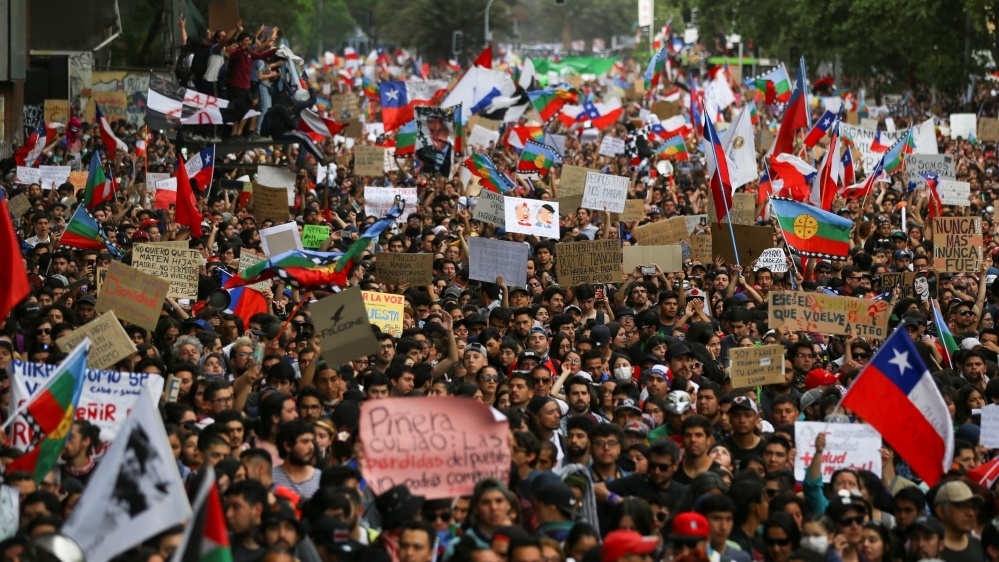The Gryphon takes a look at how high inequality has led to violent protests in Chile and reflects on sustained income inequality in the UK.
Over the last few weeks intensifying protests in Chile saw 22 killed and thousands injured, as people took the streets in the name of economic equality.
For many protesters though, the real number of casualties is in the hundreds of thousands – those who are struggling to get by on an income way below the national average.
Chile was recently ranked the most unequal of the 30 richest countries in the world, a statistic that hit hard in the South American nation, fuelling rising anger amongst those who feel their problems are being ignored by the government and powerful elite.
When it was announced that public transport fares were to significantly increase, over a million people took to the streets in a stance against rising living costs.
In response to the protests the government has gone back on the metro price hike as well as increasing the minimum wage and basic pension.
In an attempt to bring an end to the protests, Chile’s president Sebastian Piñera has also dissolved his cabinet and will form a new government, promising to the millions of voices calling for change, that he will listen.
More recently, the government have agreed to calls for a referendum on the country’s constitution, which will take place in April next year.
A victory for the protesters, but it will take a lot more to get Chile’s level of income inequality down to a similar level of its G7 partners. Some feel that such promises of reform are not enough and are continuing to protest, despite recent announcements from the President.
Many believe the reason behind Chile’s high inequality comes down to a regressive tax system that often hits the poorest the worst and hardly taxes the rich, leaving the government with less income to spend on levelling out the playing field and alleviating those stuck in poverty.
How does the UK compare?

Sadly the UK is hardly in a position to take the moral high ground. The Gini Index is the most widely used measure of inequality and works on a scale from 0, complete equality, to 1, complete inequality.
On the index, Chile gets a score of 0.460, whereas the UK gets a score of 0.357. Not bad on the face of it, but if we compare this to the some of the Scandinavian and central European countries, whose scores are all below 0.300, it is clear there is a long way to go for the UK.
What is perhaps more concerning, is that the UK’s level of income inequality today, is approximately equal to that of 2002. Unlike with Gross Domestic Product (GDP), a measure of the size of the economy, it seems we cannot rely on income equality to continue improving over time.
Policies will need to be put into action with the specific aim of reducing income inequality, rather than hoping that the problem will go away through solely targeting economic growth.
The countdown to the UK’s general election on December 12th is well and truly on and we have already seen opposition parties using the UK’s high inequality and relative poverty as a weapon against the Conservatives, whose efforts to tackle such issues have been forced to take a back-seat due to Brexit.
But whether or not such messages will be picked up by voters is yet to be seen, with many experts believing it is likely to turn into a single-issue election at the ballet boxes.
Image: [Reuters]

